Educating Democratic Virtues in Europe

The aim of the Educating Democratic Virtues in Europe project is to understand how democratic virtues feature in various forms of civic education in Europe and how democratic virtues can be strengthened in this regard. This aim and the following research questions underpin this project: In terms of key outcomes, the project will contribute vital […]
Phronesis: Developing and Validating a Short Measure of Practical Wisdom
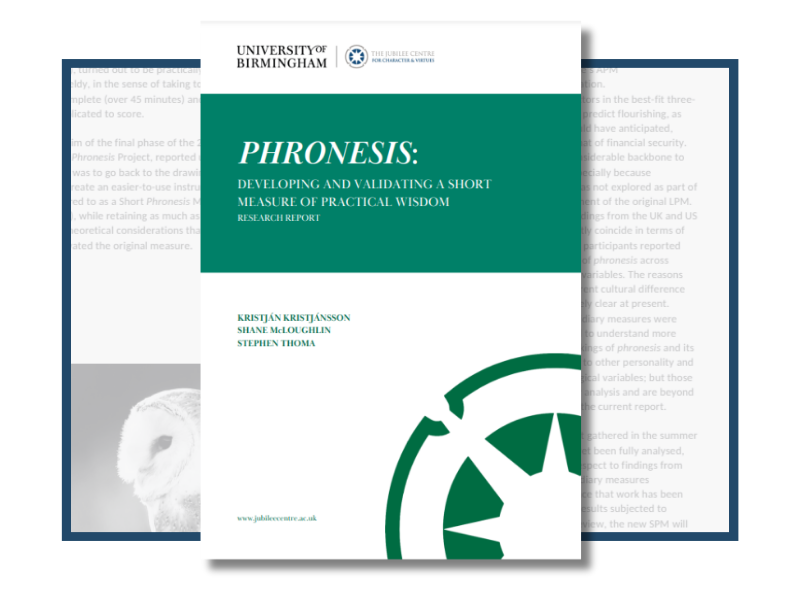
Phronesis (practical wisdom) has come under increased scrutiny of late within neo-Aristotelian moral psychology, character education and virtue-base professional ethics. While great strides have been made within the Jubilee Centre since 2019 in understanding the concept of phronesis and creating a theoretically viable instrument to measure it, the instrument originally designed by the Centre, the […]
Phronesis: Using an Aristotelian Model as a Research Tool
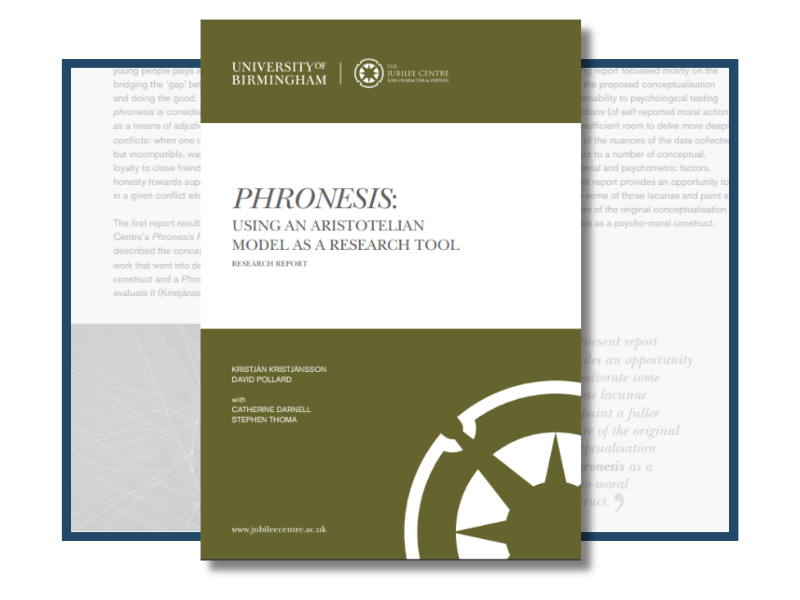
The present report complements a previous report that described findings from a project on phronesis (practical wisdom), conducted in the Jubilee Centre for Character and Virtues in 2018–2020 (Kristjánsson et al., 2020). The previous report explored the conceptual contours of phronesis and proposed a four componential model (Aristotelian Phronesis Model: APM) based on different functions […]
Phronesis: Developing a Conceptualisation and an Instrument
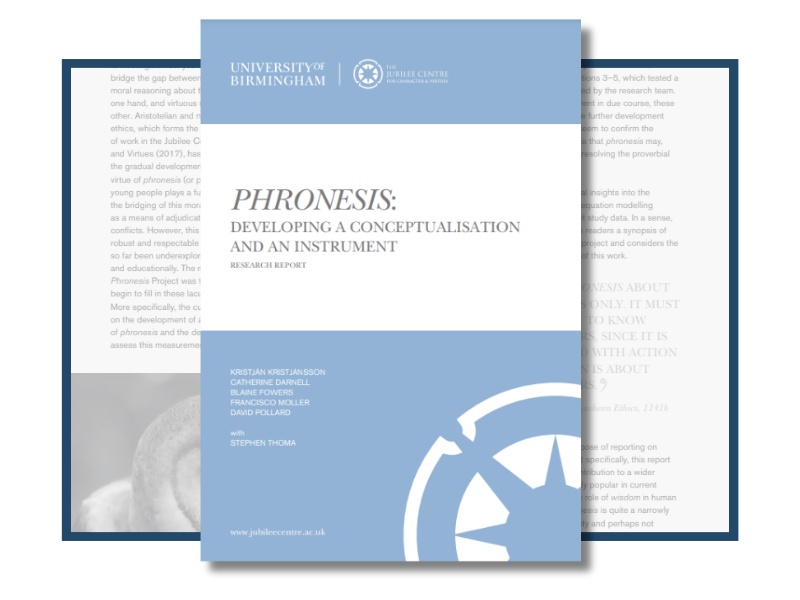
According to Aristotelian character developmental theory, young people who have acquired the right moral traits through habituation and role modelling need gradually to develop the intellectual virtue of phronesis, or practical wisdom, to guide their decision making; otherwise, their moral life will be fragmented, uncritical and lacking in intrinsic value. The upsurge of interest in […]
Educating Cyber-Wisdom
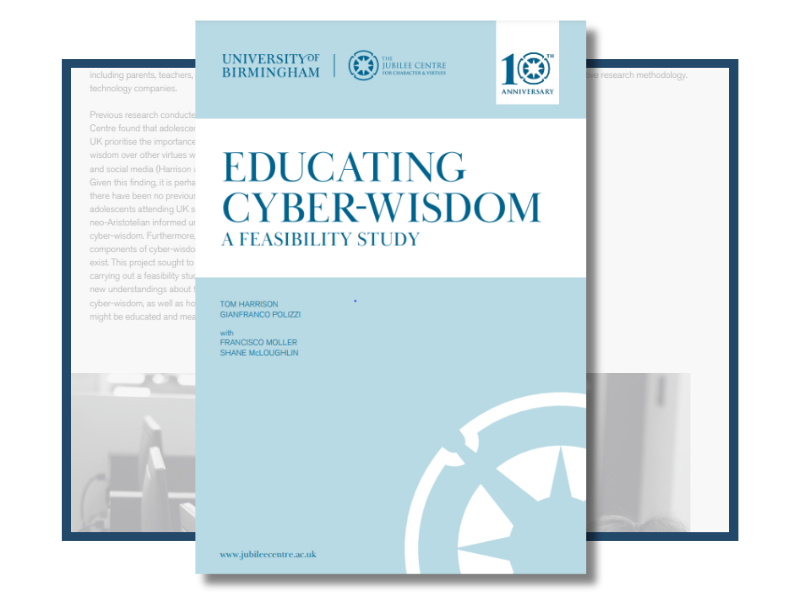
Cyber-wisdom is defined in this report as the ability to do the right thing at the right time, when using online digital technologies. It is a virtue that helps users to maximise online opportunities and minimise online risks. The task of educating cyber-wisdom in children and adolescence relies on joint efforts from multiple stakeholders, including […]
A Cyber-Wisdom Approach to Digital Citizenship Education
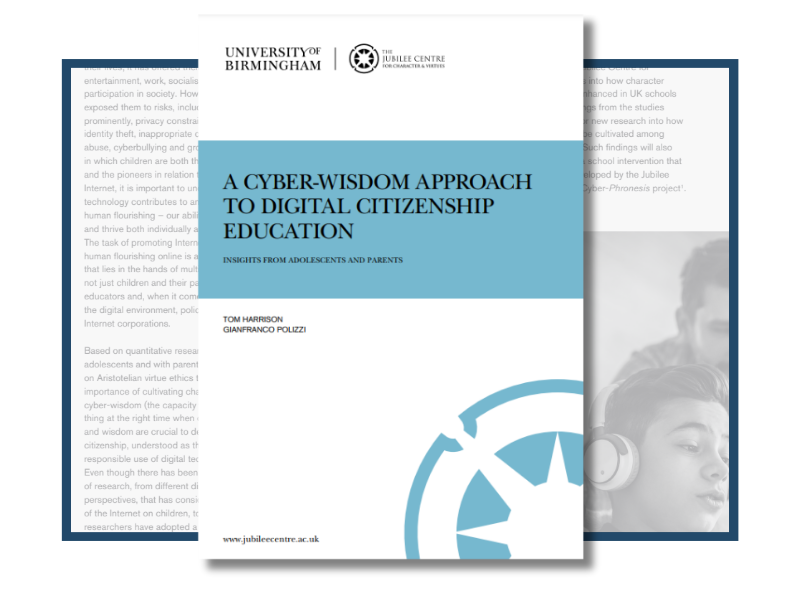
For many children, the Internet has improved their lives; it has offered them opportunities for entertainment, work, socialisation and active participation in society. However, it has also exposed them to risks, including, most prominently, privacy constraints, misinformation, identity theft, inappropriate content, online abuse, cyberbullying and grooming. In an age in which children are both the […]
Can the Professions be Virtuous?
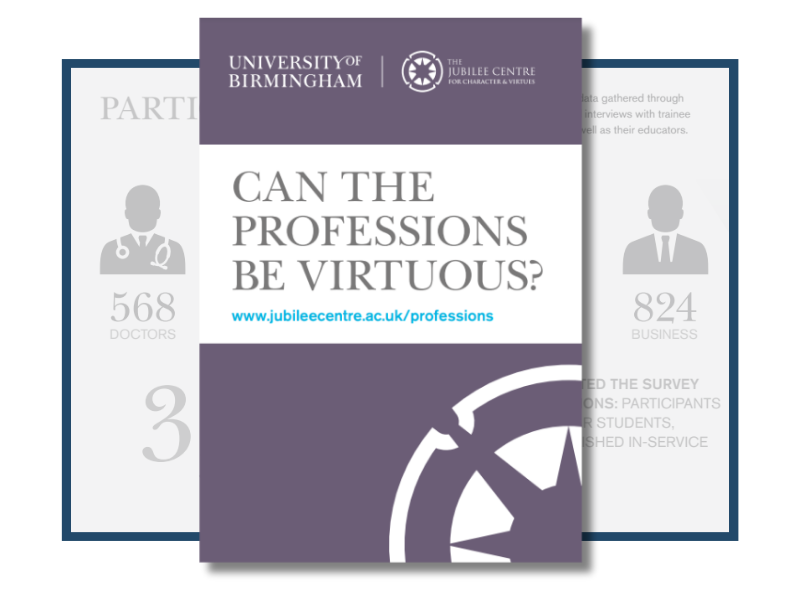
Big Question: Can the professions be virtuous? This research was designed to deepen understanding of the place of virtues and values in initial education, training and subsequent professional practice in key professions in the UK today. To date, the Jubilee Centre has undertaken research in the teaching, law, medicine, nursing, and business professions, and British Army. […]
Virtuous Practice in Nursing
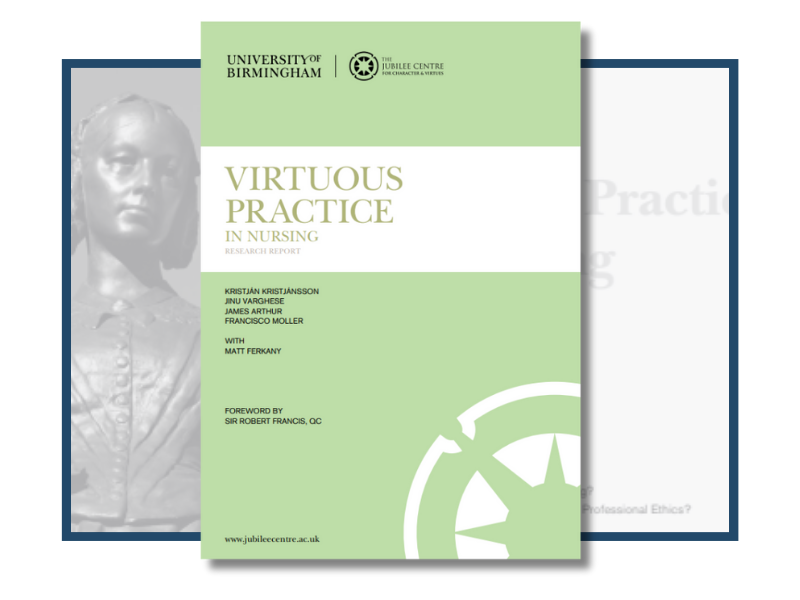
The Virtuous Practice in Nursing research report was published on 28th September 2017. Drawing on insights from nursing departments, students, and practitioners, this interdisciplinary report is designed to deepen understanding of the place of virtues and values in the initial education, training and subsequent professional practice in nursing. Summary of Key Findings Summary of Key Recommendations Project Overview […]
Phronesis
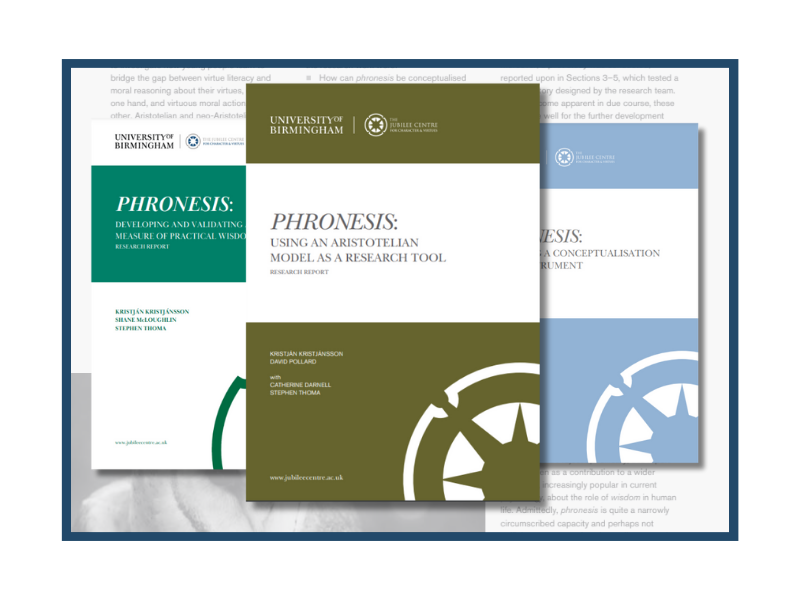
Project Overview The Psychological Development of Character: Emotion, Identity and Phronesis project aimed to investigate the factors that motivate moral action in adolescents. Specifically, the project focussed on the ‘gappiness problem’; addressing what bridges the gap between virtue literacy (knowledge of virtues) and virtuous moral action (acting in a virtuous way). Existing theories of moral action suggest […]
Thank You Film Awards
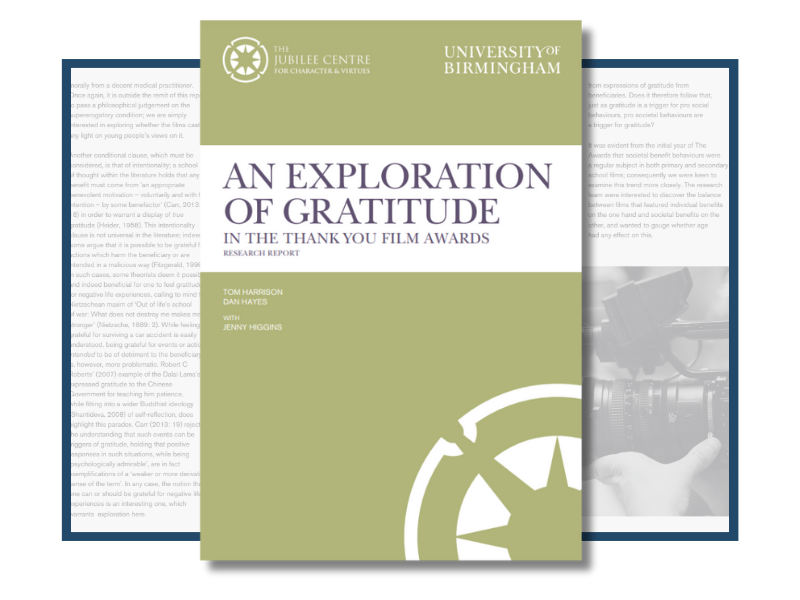
Project Overview This project explored what young people are grateful for, who young people are grateful to and their understanding of gratitude. Young people between the ages of 5 and 16, predominantly in schools and youth organisations across the UK, were asked to create a short film to say thank you to a person, organisation or […]
